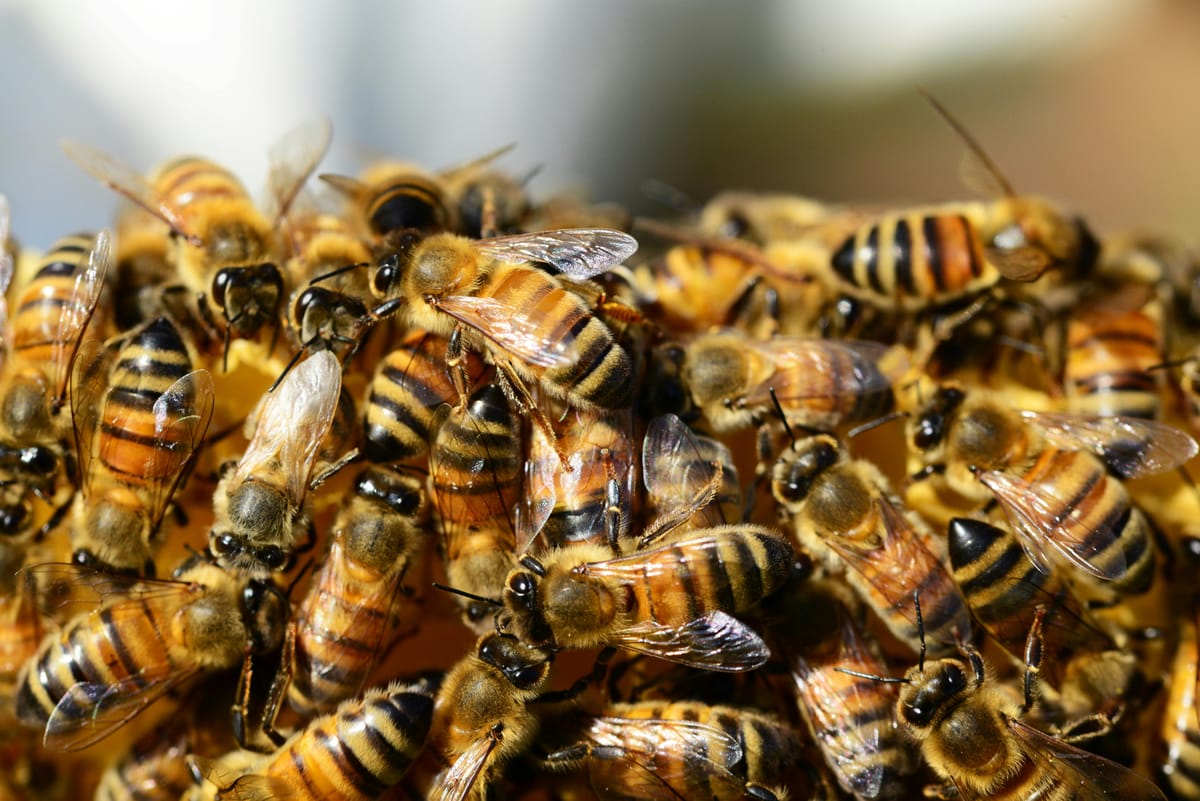Revenge of the Liberal Arts

"Swarm intelligence is the collective behavior of decentralized, self-organized systems, natural or artificial. It is a new way of thinking about complex systems, one that emphasizes distributed problem-solving, adaptability, and resilience. Swarm intelligence is not just about individual intelligence, but about how individual intelligence combines to create collective intelligence."-— Eric Bonabeau, "Swarm Intelligence: A Whole New Way to Think About Business" (1999)
Can anyone lead AI without smack talk?
Recently, I've been trying to get a take on the cohesive approaches being applied to what we are referring to as "AI" from the top leaders inside FAANG and its decidedly difficult to do. One approach is to look at their social media and mainstream media presence and statements. Another is to look at their published research. Still another is to look at the fruit of their labor in terms of product releases. I expected one of those minings to reveal pure smack, talk. Instead, I see smack talk everywhere.
Come on Yann, can LLMs reason or can't they?
The trouble I have run into is that these three sources provide distinctly different visions that frequently conflict with each other. For example, perhaps Head of AI X for Company Y states that LLMs can't and never will be able to reason. Yet a paper published two months after this public statement begins on the premise that LLMs and DNN's can reason well and the marketing material for their products boast emergent reasoning capabilities.
Reading, writing, arithmetic but where's the hickory stick?
I also see a deep disregard for history and philosophy in the leading AI executives' work which is getting them in trouble and an astonishing inability to use grammar check and spell check in even their published work (perhaps because they've abandoned traditional tools for LLMs which aren't very good at doing what grammar check and spell check did flawlessly). I make a lot of errors. Ostensibly, they have publishers and teams and a staff they can pan to fix these things, however.
The map is not the territory
I read an article today about something called geomedicine, which is a field that combines public policy, knowledge of geology, and medicine in interesting ways.The arguments against the model is that there are no geomedicine experts per se because it is too challenging for one person to cultivate expertises in all three areas. However, the model proposes that it's a field that can only emerge from cross-functional dialogues and this is the thing that is bound to dog us:
We are addicted to the idea of one leader from one specialty leading the charge when what you need is a multitude of perspectives. When we erect a single leader from say, computer science, the leader has a tendency to reduce problems and the subsequent solutions to what they know, what they understand, and what biases they enter into coming from that discipline. Interdiscplines are haunted by interdisciplinary folks who still spend most of the room air trying to force one discipline to be the handmaid to the other. (Pro tip: that means they aren't truly interdisciplinary.)
Banker George Lee claimed that all of this is leading to a "revenge of the liberal arts."
George Lee is a historian, so mayabe he is also guilty of reductionism. However, his point is well taken. As AI and machine learning start to dominate quantitative analysis who can make those analyses: 1) actionable 2) intelligible and 3)ethical? We need well-rounded humans to be able to act on these ML produced outcomes. For my Arisotlean friends, this is the techne we need the phroenesis which is practical wisdom. Is a phroenetic AI even possible? Perhaps. Currently? Not probable. It appears that humans are not out of jobs. We may have created a situation where most humans are not prepared or well-educated enough to man them, however.
Can we leverage swarm intelligence?
We've been really good at reducing sociology into comptuer frameworks and algorithms but can we manage the converse? Can we leverage those same ideas to solve the complexity that cross-functional data management has entered into global human affairs? Before it was a library of algorithms and components for Java, C++, and Python, Swarm Intelligence was a proposed new way of doing business. I haven't seen a lot of people able to leverage it. Given the prevalence of VUCA---volatility, uncertainty, complexity, and ambiguity--it seems that our appetites for command and control have become insatiable. Or rather, business depends on it to make the flow of capital predictable and easy to direct. What might trigger the activation of a swarm? The swarm is always the thing that produces the innovation businesses claim to value. Let no one fool you---single visionaries are a myth. The personal computer was swarmed, for example. Vaccines were swarmed. Can you name an innovation that wasn't first produced by swarm? It's hard.
Let's start swarming, what do you think?
This is on my mind because one of our developers, Aaron, likes to experiment with virtual ant colonies. My life partner has also just started an apiary. (Singular Honey is on its way to our paid tier perks next year, be ready.)
We need some swarm activity in the tech eco-system. Things have stacked against it. But sometimes.
You just gotta swarm.

This banker thinks the liberal arts are going to make a comeback as AI reveals the weaknesses in approaching the world computationally

The original paper that inspired the idea of Swarm Intelligence





